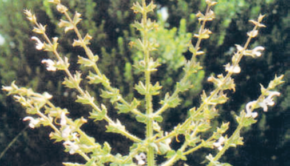Somerville, Strawberries and Shehechianu
Our neighboring town, the city of Somerville, was recently in the national news as the first city in the U.S.to systematically start tracking its citizens’ happiness. “How Happy Are You? A Census Wants to Know.” NYTimes, May 1.
It’s another crack in the reigning paradigm of reductionism: the idea that it is more scientific and effective to break things down to measurable parts than it is to look at what you’re really interested in. Despite the saying, “money can’t buy happiness” we kinda’ think it does. We still in this country tend to measure money and think that it gives a good idea of happiness. But, that is starting to change and Somerville is in the forefront of the trend. Somerville’s mayor, Joseph A. Curtatones said, “Cities keep careful track of their finances, but a bond rating doesn’t tell us how people feel or why they want to raise a family here or relocate a business here.” Perhaps it is an indication that people are starting to question whether or not the ways that we have been pursuing our happiness are yielding the best results.
The mayor of Somerville hasn’t asked me, but if I were to give my opinion about happiness I might start by taking a look at one of the traditional Jewish expressions of happiness, saying the shehechianu blessing. “Blessed are You, YHWH our God, Sovereign of the Universe, who kept us alive, sustained us, and brought us to this moment.” This blessing implies an acceptance of rhythms in time. There are times when we don’t have what we want and times when we do. We give thanks for arriving at a time when we do have what we want. But our present culture pushes us toward craving to filfill our desires at all times, whether it’s food, sex, entertainment or twitter. This isn’t a recipe for happiness; it’s a description of addiction.
So, in a small countercultural move I have started a “Shehechianu Club.” If you’ve noticed on the Organic Torah website we have a box for the Shehechianu Club: you join by promising to abstain from at least one fruit or vegetable until it comes into season. One of the traditional times for saying the shehechianu blessing is upon eating a fruit for the first time in its season. In the old days this was really a joyous occasion. But with our supermarkets full of every fruit and vegetable, all year round, from all across the world, we’ve effectively erased that rhythm and that little bit of happiness. To bite into an apple or tomato for the first time in months is getting the real thing. A fruit or veggie in season is a different animal than the made-for-shelf-life faux food we are used to. And, by the way, it saves on carbon footprint and supports local farm economies.
I personally took the pledge for strawberries. I know, officially, shehechianu is for Jewishly defined “fruit,” and strawberries are Jewishly defined veggies. But I’m willing to stick my neck out and include strawberries because they are as yummy as any fruit and they have a short and defined growing season. It’s been a bit challenging in the last couple weeks since we’ve started to get California strawberries in at Whole Foods. Doesn’t that count as “in season?” Well, they are in California, but I’m holding out for the local strawberries. We still have a couple of weeks left if you want to join in waiting for the new strawberries. Or you can start now and wait for the later summer berries like blueberries – or apples in the fall. Either way, let us know on the blog. I don’t know if the census where I live in Newton will take note of it, but it makes me happy to have some rhythm in my life.





2 Responses to Somerville, Strawberries and Shehechianu